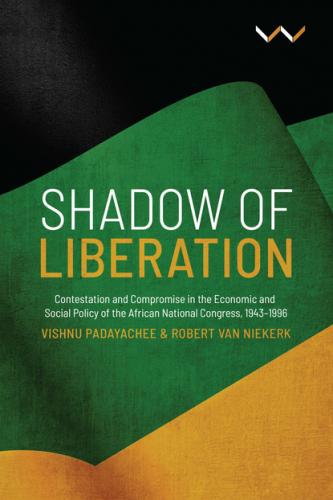PREFACE
In the pall of a destructive preceding political era under Jacob Zuma, characterised by corruption of the body politic and the institutions of our democracy and by poor economic performance, the president of the African National Congress, Cyril Ramaphosa, has promised a ‘new dawn’ for South Africa. He advocates that ‘… we put behind us the era of diminishing trust in public institutions and weakened confidence in leaders. We should put all the negativity that has dogged our country behind us, because a new dawn, inspired by our collective memory of Nelson Mandela and the changes that are unfolding, is upon us’ (Vuk’unzenzele 2018). We must ask what lessons have been learnt though from the political circumstances and policy choices made since democracy in 1994 in South Africa that require the arising of such a new dawn.
In contributing an answer, we feel an honest and forthright reflection is required of our recent economic and social policy-making history, in particular in the era of the democratic political transition between 1990 and 1996. Our book is therefore centred on the primary question that, given its historical state-led anti-inequality stance, how did the ANC in the 1990s come to do such a dramatic volte-face on economic and social policy and advocate for an essentially market-driven or neo-liberal approach. How did this U-turn happen? What were the forces that led the market-friendly charge? Indeed, as many have asked, did the ANC willingly go that way or was it pushed into such compromises?
We show here that the economic policy choices of the ANC leadership were based on a judgement that there was no alternative to the neo-liberalism that had dominated global policy debate since the early 1980s. Ironically, this approach, also referred to as the Washington Consensus, was slowly losing credibility following the publication of the Japanese-sponsored World Bank’s The East Asian Miracle report (1993c). That report was highly critical of the core economic and social policy positions that emerged out of the Washington Consensus. This rethinking globally on failed macroeconomic policy in the early to mid-1990s was happening at precisely the time when the ANC was entering negotiations with the apartheid regime over a democratic constitution and the accompanying institutions of a post-apartheid state. The ANC, however, entered this global arena of fierce contestation over macroeconomic policy strategies and ideas unevenly schooled in economic policy debates and in economic theorising about their history.
In contrast to the ANC, the apartheid state was able to turn to its well-resourced economic institutions and supportive state agencies, such as the National Treasury, South African Reserve Bank, the Central Economic Advisory Services, the Development Bank, the Land Bank and other state institutions, to confound the ANC with powerful, albeit flawed, neo-liberal ideas and policy proposals, which they had begun earnestly to espouse and implement from the late 1970s. In that exercise of persuasion and power play, the apartheid state had the implicit backing of Western governments and global financial institutions, as well as that of a still powerful local capitalist class.
Apart from ‘there was no alternative’, at least two other arguments are raised in defence of the ANC leadership’s neo-liberal choices. The first is that the state was in a fiscal crisis, so no alternative policy strategy could be entertained or financed based on a state-driven investment programme. The second was based on the view that implementing any state-led investment and redistributive social policy delivery programme would have relied on a largely untransformed apartheid state bureaucracy and would have been undermined by that old guard.
Some have questioned the degree and depth of the fiscal crisis in historical and comparative context (see Michie and Padayachee 1997, 1998; Fine and Padayachee 2000). By examining alternative, yet fiscally responsible, policy frameworks, such as the ANC’s own (later disowned) macroeconomic policy framework (MERG) and the Congress of South African Trade Unions (Cosatu) led Reconstruction and Development Programme (RDP), we show that the first view was fatally flawed. There were credible and imaginative policy alternatives, but they were not only eschewed, but imperiously discarded without deliberative debate within the ANC or its alliance partners. While we do not deal extensively with the second point referred to above, it is clear that this argument is something of a feeble cop-out. Surely, to be consistent with the culture of democratic accountability forged in the mass democratic movement, the right strategy was to agree, through democratic debate, on an appropriate, progressive policy framework, and then consider the kind of state capability needed to give effect to it? The outcome by now, 25 years later, we maintain, would have resulted in far more genuinely emancipatory outcomes for the majority of our people. That approach is what the Afrikaner nationalists did in the lead-up to their own racist version of freedom in 1948 and thereafter (see, for example, Freund 2019). After 1959, Fidel Castro’s
